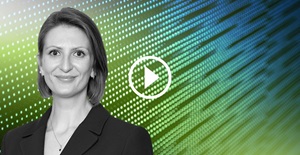Support for introducing a right to disconnect in the UK is growing. Research by Ipsos reveals the majority of UK adults aged 16-75 are in favour of introducing a law giving employees the right to ignore work-related communications, such as emails, texts and instant messages, outside working hours. 60% said would support the government introducing such a law, including 34% who would strongly support it. Only 11% indicated they would be against it.
People Management reports on this quoting Ben Willmott, head of public policy at the CIPD who makes a good point. He says that a legal right to disconnect would have a limited impact, and alone would not address why people feel they cannot switch off. He cited issues such as heavy workloads, a lack of support and unreasonable management expectations as causes for the inability to disconnect. He says: ‘Simply giving staff the legal right to choose not to respond to calls, emails or other digital communication outside of working hours won’t resolve these issues or necessarily improve wellbeing.’ He says: ‘Employers should make it clear that employees don’t have to respond to digital communications outside working hours unless it suits them.’
We agree with that - employers should review their procedures for home working and assess their expectations of employees when it came to dealing with workplace issues outside of contracted hours and that is message we have been giving to clients throughout the pandemic. Kate Dodd is one of the lawyers advising on this issue and she joined me by video-link from Manchester to discuss it:
Kate Dodd: “It's an interesting one, Joe, because actually this has been a real issue for a long time. Businesses have been looking at this, I think, for probably more than 10 years now and as, of course, technology has moved on, so have people's use of technology, habits, etcetera and, of course, bad habits have formed around that. So, I do think this has been an issue for a long time but I agree with you that the pandemic has definitely accelerated this. I think people find it harder to switch off now than they ever have done before. I certainly have noticed that people don't take a lunch time anymore and actually that's something that we as a business have started to really kind of try and turn the tide on since January. So we have actively had to try and introduce a lunch hour because the fact of the matter is that people are not going out for lunch, they're not leaving their homes in the mornings to travel to work or, vice versa, to go home and therefore they're considered to be always available and, of course, what that does is it leads to people being always on, and this phrase that I hear, which I think describes it very well of, ‘I'm not working from home, I'm sleeping at work’.”
Joe Glavina: “People Management makes a good point, Kate. They point out the direct link between an employee’s burn-out and the employer’s failure to manage their work properly. So, there’s a role for HR here, clearly.”
Kate Dodd: “Yes, absolutely. I mean, this is definitely an issue for HR. We know that burnout is a medical condition and it's clear that it's to do with a failure to manage stress in the workplace and that management definitely doesn't sit with the employee alone. I mean, of course, it's up to everybody to look after their own mental health and well-being but, of course, an employer has a huge role to play in that and if an individual does burnout, and if an individual is unable to work, then of course the tribunal, ultimately, if somebody then suffers an injury, because of that, if they've become unwell, their mental health is impacted, or indeed, their physical health is impacted in such a way that they suffer from an injury, the court are going to be looking at that to say well what did the employer do? It’s not enough just to say to people we encourage you to adopt good habits, and we encourage you to switch off, there needs to be some data behind that to back that up and employers need to be actively understanding and talking to their people about the habits that they have and how regularly they're working beyond what the what they will be considered to be reasonably doing, how often they are struggling to disconnect, all of those types of things need to be something that the employer is actively aware of, data that they can get their hands on.”
Joe Glavina: “One of the snags with managing home workers is knowing when they’re working, because they’re at home obviously, so they are far less visible. So, it depends on employees letting management know when they are working. So, it’s a two-way street if you like.”
Kate Dodd: “Yes absolutely. I mean, I think you're absolutely right, it has to be a two-way street. Employers have to be asking the question, though, and I think quite often, particularly when it's busy, it becomes something that people forget to ask about, or don't necessarily want to ask about. So, let’s say there’s a deadline looming, a manager will probably themselves be under a huge amount of pressure as well and it becomes just an accepted thing. I think the real danger is actually where managers aren't aware of what an individual is doing. So they might think, well, it's convenient for them to have a call with their team every morning at 8am and they might not realise that there is someone else in the business who thinks it's convenient to have a call every night at 7pm and somebody else who thinks it's great to have a working lunch, and then that individual, who's on the receiving end of course, might quite quickly end up in a situation where they have absolutely no time to switch off and we know that has really significant effects on mental health as well as physical health, musculoskeletal, conditions of the spine, all sorts of things that are impacted by this fact that people are so connected to their screens.”
Ipsos, who conducted the poll, say the main driver for a new right to disconnect has been the pandemic and the emergence of hybrid working and an uptake in flexible working. Managing a hybrid workforce is a new challenge for most employers and, again, something we have been advising on during the pandemic, but do note that hybrid working and flexible working are very different. That’s a point that Anne Sammon made clear to this programme back in January in ‘Hybrid and flexible working ‘conceptually very different’’. That programme is available for viewing now from the Outlaw website.



